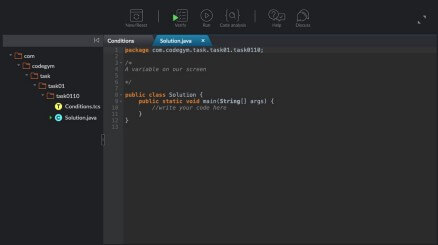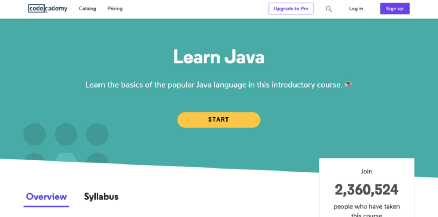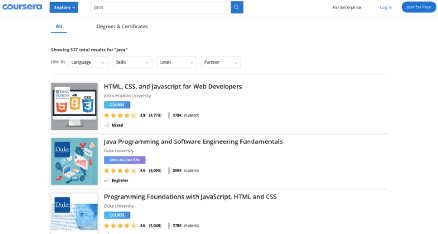今日推荐开源项目:《极小化 bilimini》
今日推荐英文原文:《Want to Learn Java Quickly? Burn All Your Java Tutorial Books》

今日推荐开源项目:《极小化 bilimini》传送门:GitHub链接
推荐理由:将 bilibili 的界面变得很小从而可以轻松在电脑上使用的项目。兴许有的时候你想要一边写东西一边看看 B 站新番,或者是苦于笔电屏幕不够大,或者只是干脆的想摸鱼,这个项目就能解决这些问题,它能够把 B 站的界面减小到你能看清但是又不太占空间的位置,并且保持在屏幕最前便于观看(因使用此项目摸鱼导致的错过 DDL 等一系列后果请自行承担)
今日推荐英文原文:《Want to Learn Java Quickly? Burn All Your Java Tutorial Books》作者:John Selawsky
原文链接:https://medium.com/javarevisited/want-to-learn-java-quickly-burn-all-your-java-tutorial-books-6d06f5d77e84
推荐理由:在学习时不能够只学习理论而忽视实践
Want to Learn Java Quickly? Burn All Your Java Tutorial Books
Every day, the Java programming world is flooded with beginners who crave to learn the Java language. It’s not surprising that you are as well.The benefits of coding in this language are nearly endless. Being one of the most popular and in-demand languages in the world, you certainly can’t learn Java and be jobless!
But it isn’t just the massive earnings that make it a juicy skill to acquire as a programmer: it also makes learning other languages much easier. And of course, you can easily learn Java, if you know the right way.
And that is the problem…
Unfortunately, most of the time, beginners get frustrated along the way. While it’s possible that this could be the result of other factors, it’s largely a question of adopting the wrong approach to learning Java.
What Is the Wrong Approach to Learning Java?
Probably the top thing that popped up when you first typed “how to learn java” into Google is “full java tutorial”. Then, you clicked through and what hit you first was a chunk of theoretical gibberish or some bulky book that took you back to high school. You tried to read it, and before you hit the end of the first part, you were left more confused than when you started.That’s not to say that theory is bad altogether. It’s not. Every learning process requires theory in order to explain the details. What kills it is sticking to theory alone when learning a programming language.
And what most so-called java tutors do — teach a practical skill in theory — is outright wrong. That never works out well.
Why?
First of all, it drains your passion and motivation. In the words of a popular scholar: “the textbook never teaches”. Theory doesn’t drive your passion for learning. In fact, reading theoretical tutorials on java only isolates you from learning it. While it may build up some knowledge in you, it certainly can’t make you a good Java programmer.
Second of all, theory slows down your learning. In the time you’ve spent reading some bulky textbooks, you could’ve made massive strides in your learning through practice. Avoid the terrible mistakes some students make. I get it all the time. Just recently, a few students approached me with this issue. They confided in me as a Java expert and tutor and opened up on the frustrations they encountered while learning Java. They confessed they had studied Java for over a year and were still confused by how codes work. Really?
Yes, it’s laughable. But hey, a lot of Java students suffer the same fate. And the reason is simple: they chose the wrong approach to learning — theory!
So, What Approach Works Best When Learning Java?
Practice makes all the difference. The benefits are almost endless:- Practice leads to professionalism. I was able to become an expert Java tutor because of constant, repeated practice. Certainly, this is the key to the success of professional programmers. You’re just going to have to code it!
- Helps you learn. Applying the knowledge to real-life cases enhances your prowess.
- The more you practice, the more you discover, including things you didn’t realize weren’t to your knowledge yet.
- Guides you to code by hand. It gives a lot more to your skill than the fancy tools and frameworks. You get a better understanding of the coding logic.
- Helps you solve practical problems. With practice, you can appreciate problems better, understand their dynamics and offer appropriate solutions.
Online Sources Where You Can Learn Java
As indicated earlier here, your success in learning Java depends on several factors. While constant practice is a key factor, learning on the right platform is equally important. But you have to watch it. The internet is replete with different sources claiming to know and teach Java perfectly. You should be wary when making your choice.Here are my top picks for platforms and sources where you can access practical Java instruction.
CodeGym

CodeGym.cc has IntelliJ IDEA integration plugin
CodeGym is appropriately named. It is exactly the place where you can work out your Java coding skills. Learning on the platform is 80% practical. This gives you the opportunity to learn much faster than usual. You must code, code, and then code some more! And that is what the platform offers you.
You will have to execute 1,200 practical tasks. The tasks are arranged in order of complexity, so you start with the simplest, and advance to the hardest. When you complete your tasks, they will check your work and grade you.
Codecademy

You may as well be among the hundreds of programmers the platform has trained globally over the years. They offer a practical learning experience to students mastering Java, among other languages. They are also quite good at working with beginners. So, they help you plan your learning based on which area you choose to focus on.
And don’t forget, you can plan and schedule your time on the platform for better learning.
Coursera

When you visit the Coursera site, the first thing that hits you in the face is “join for free.” Well, don’t take it to be “just a freebie.” You have a powerful platform where you can learn Java quickly and even earn a certificate. That’s where the payment comes up.
While it isn’t entirely free to learn on the platform, you can agree it’s worth it. They issue certificates from accredited partner universities. There are learning materials, like videos and visuals, that can aid fast learning.
Java Revisited

This platform offers a slightly different approach to learning Java. There are tons of practical tutorial books you can access and code with. They teach and guide you to code in Java. So, it’s more of a mixture of theory and practice. You read the theory and then apply it.
Some Tips to Apply When Learning Java
While you make your choice on which platform to learn, you should note some tips that will help you learn faster and better. These tips have been generally helpful to both beginners and experienced programmers.- Don’t be afraid to ask people. Let’s get something straight: you can hardly succeed by learning in isolation. It’s a terrible approach. While you need to give your personal focus to learning, you also need to make sure you reach out to others when necessary. Some problems you will encounter may be solved just by talking to someone. You never can tell, they may have encountered and solved a similar problem.
- Follow the experience of your tutors. I’m often asked on my blog, which makes my students so successful. I just smile and say “well, I get them to walk in my own experience.” A great tutor has a wealth of experience you can tap into to build your own knowledge. Learn from this experience.
- Join forums and communities for programming. There is a number of forums and communities for programmers. Join the active ones, because there is much you can learn there. You can learn from the experience of others, asks questions, and discuss and seek solutions to problems you encounter. Some of them include Java Forum, Java World, CodeGym Help, and programming subreddits on Reddit (such as learnjava and learnprogramming)
How to Build an Effective Plan for Self-Learning Java
No doubt, learning Java requires planning and discipline in sticking to the plan. This is one of the secrets of successful professional programmers. How do you achieve this?- Make a schedule for your education and find ways to minimize distractions. You need to discipline yourself by strictly following the schedule.
- Ask the right questions. Not every question is necessary and requires a solution. Ask relevant questions in order to get helpful solutions.
- Start with the basics. If you are a beginner, start from the basics. Don’t jump onto just any level, no matter how simple it may seem.
- Code every day. Practice makes perfect. You need to constantly practice. Make coding a daily habit. For instance, you can:
- Code mini-programs.
- Don’t shy away from coding more advanced programs using Java APIs once you cover the basics.
- Try your hand at building at least one web and one desktop application.
- Make the most of the blogs and forums dedicated to Java and programming languages in general. This will help you improve.
- Use the 80% practice and 20% theory principle.
- Continue learning every day, even after you succeed.
Wrapping Up
Stop collecting Java textbooks. They will do you no good. In fact, to show seriousness in learning Java set your Java books on fire.I guess this is a more drastic way to get you to understand that books can’t teach you coding on Java. The best way to learn is to CODE. Constant practice in coding makes all the difference, and how much and how well you do that determines how quickly you will learn.
More so, don’t take communication for granted in your learning process. Visit forums and communities of programmers who share the same interest in Java. Share ideas, ask questions, contribute meaningfully. These will certainly facilitate your learning process.
下载开源日报APP:https://openingsource.org/2579/
加入我们:https://openingsource.org/about/join/
关注我们:https://openingsource.org/about/love/
